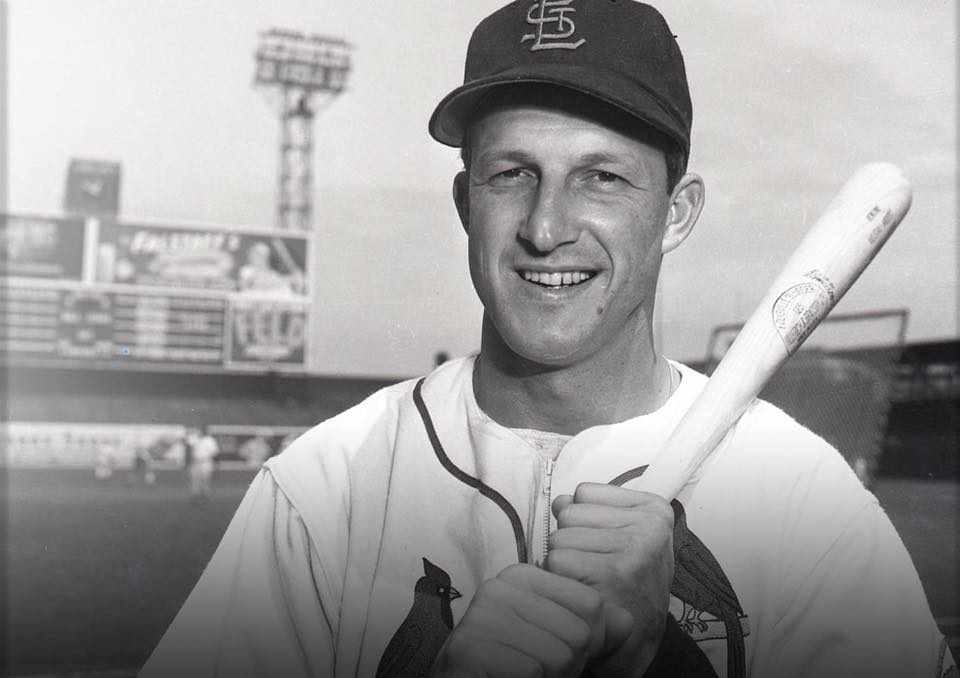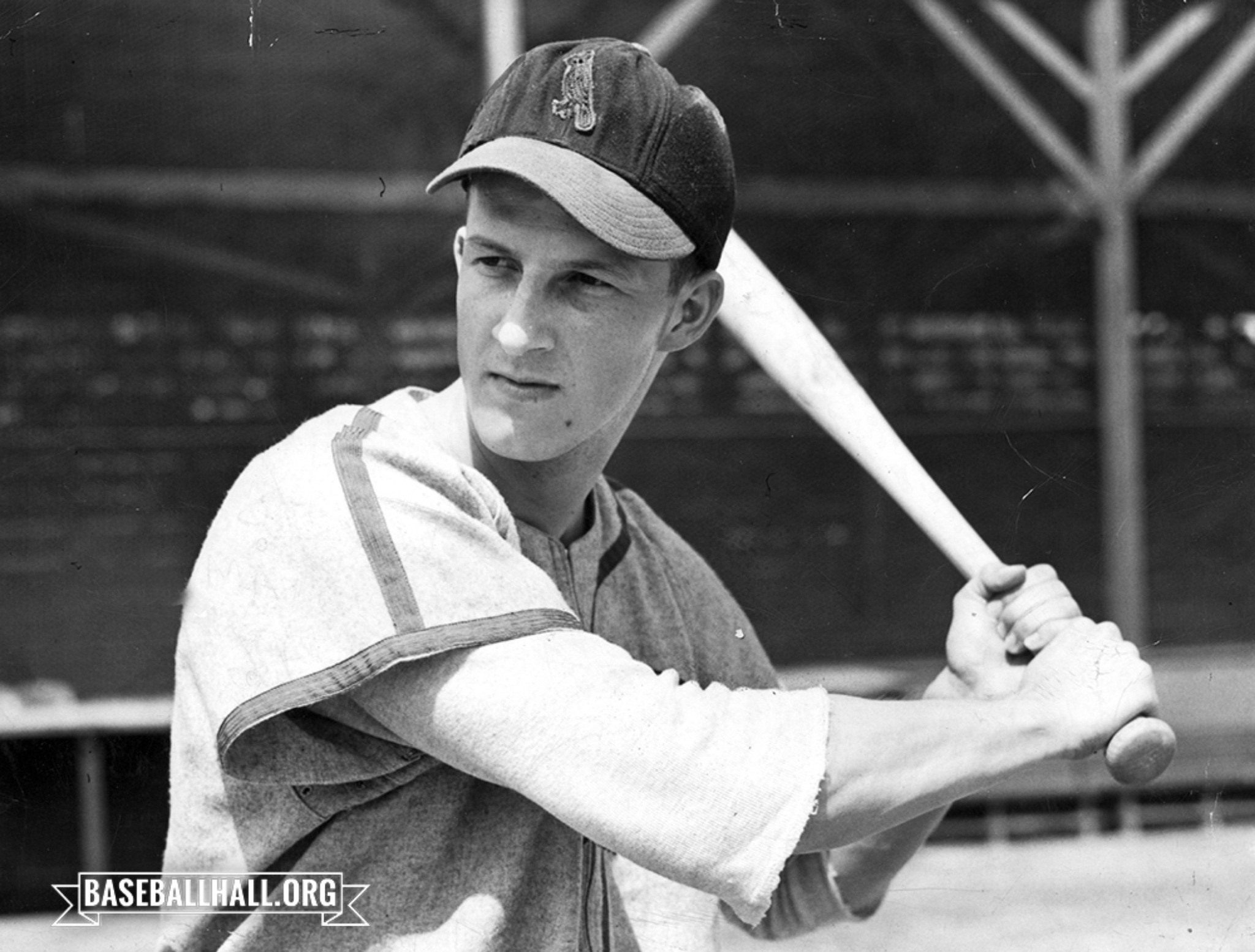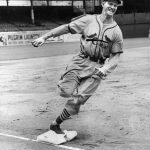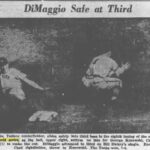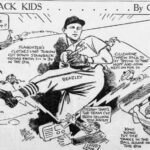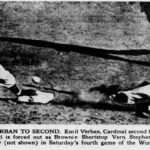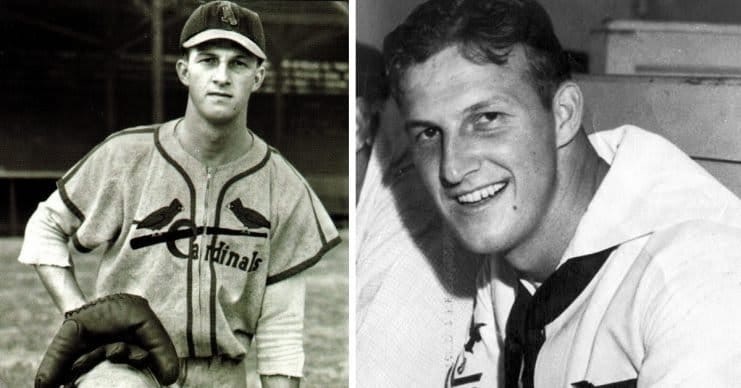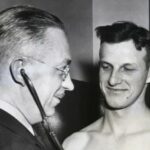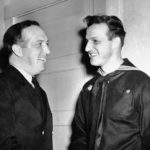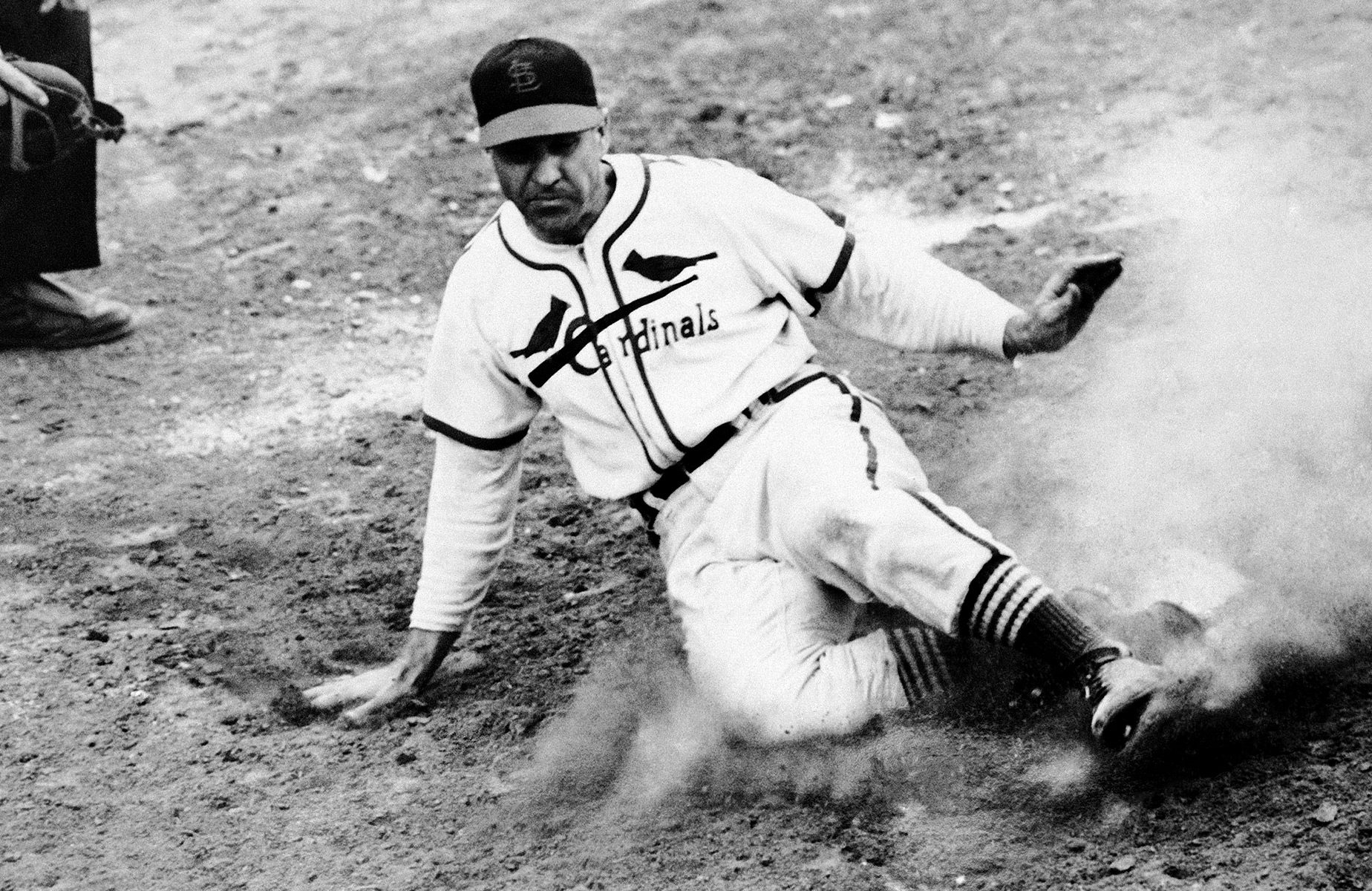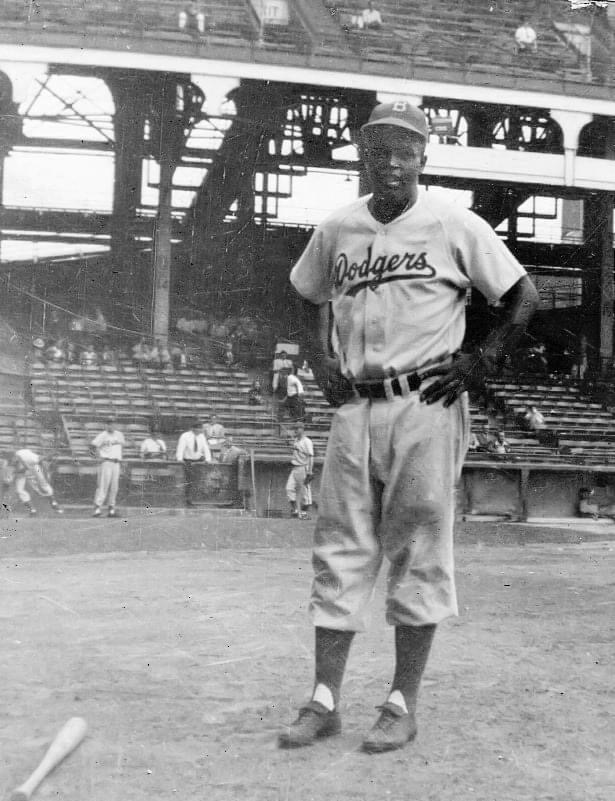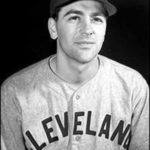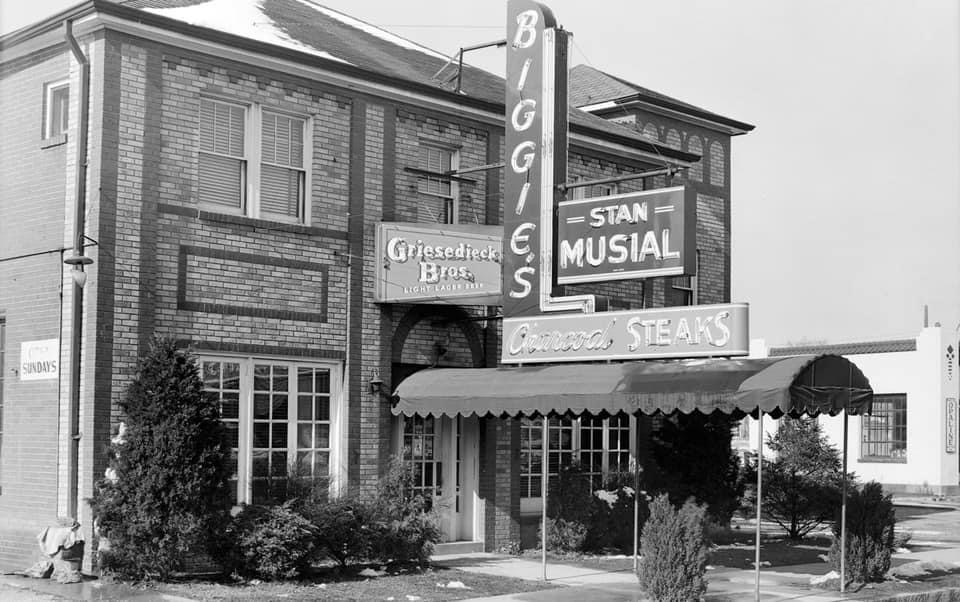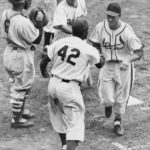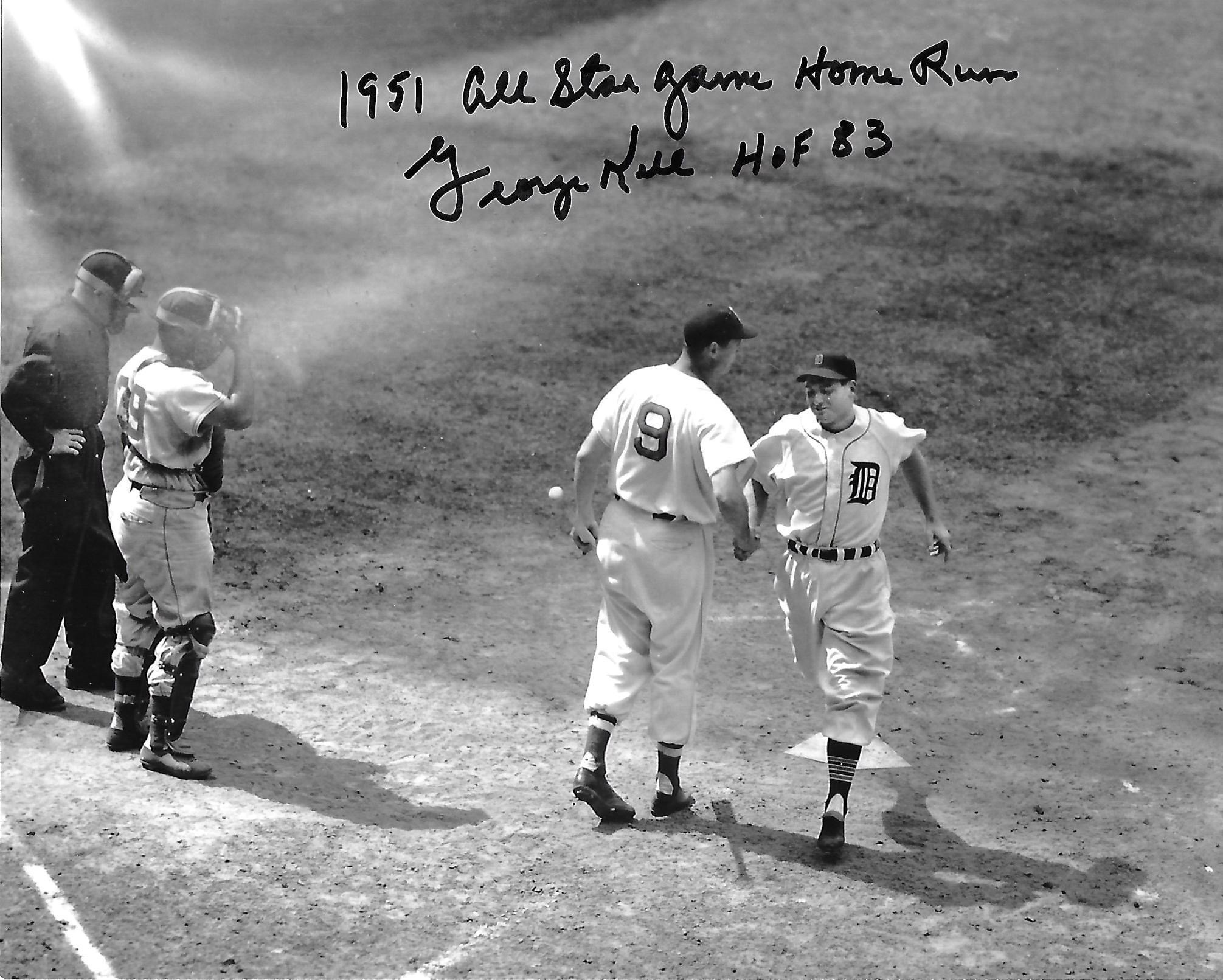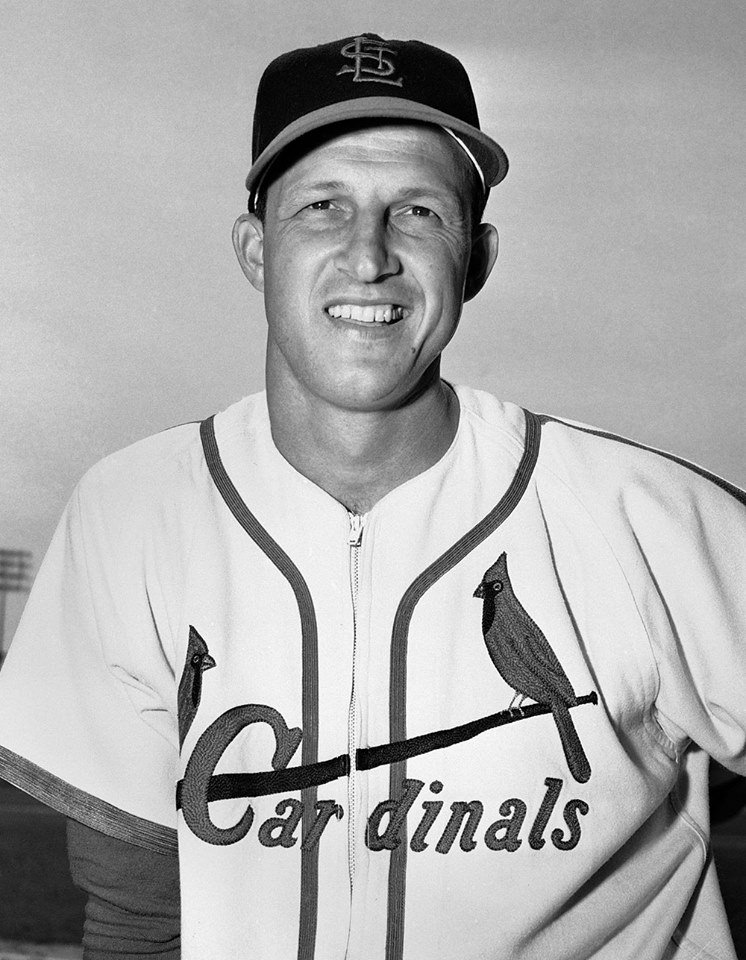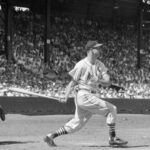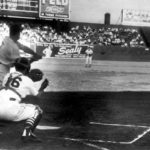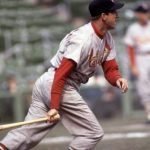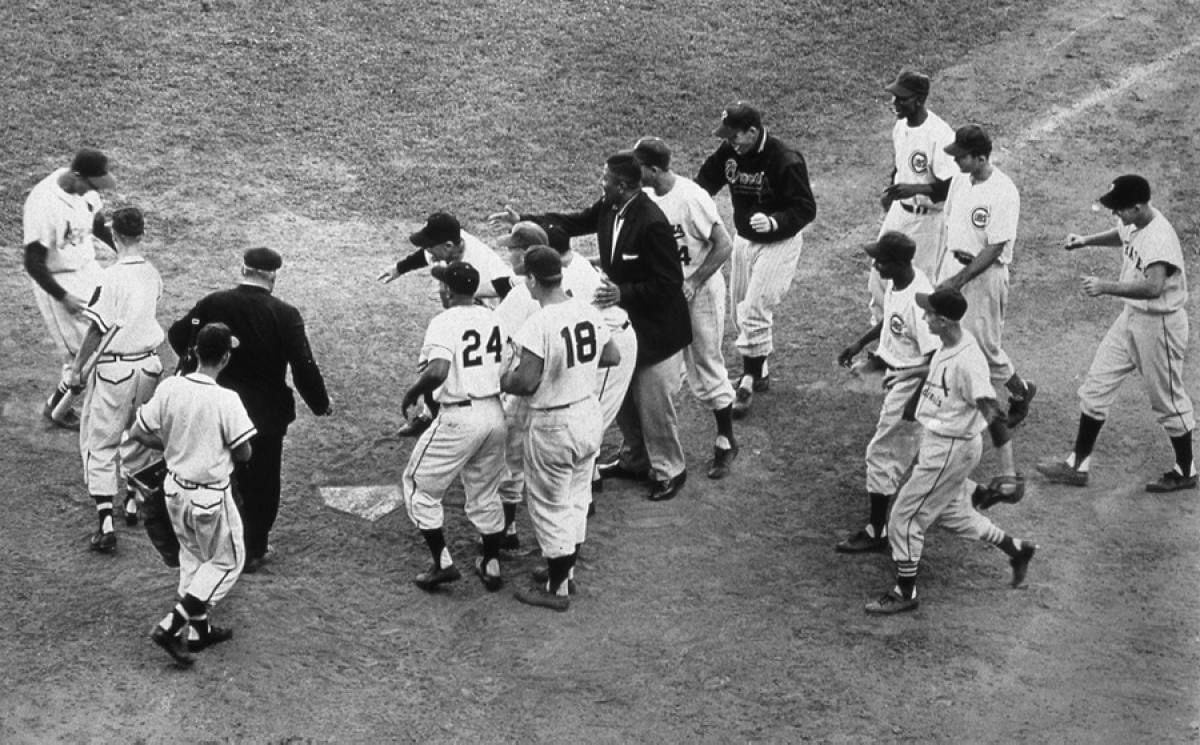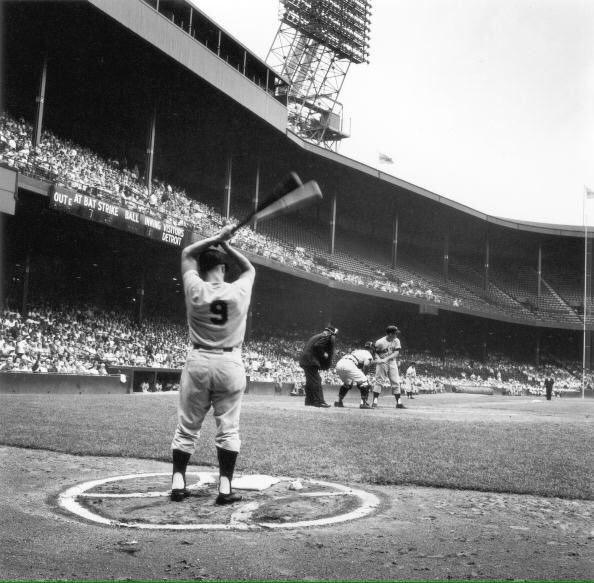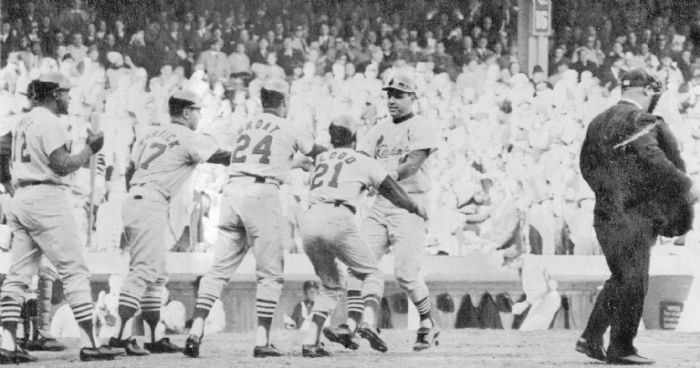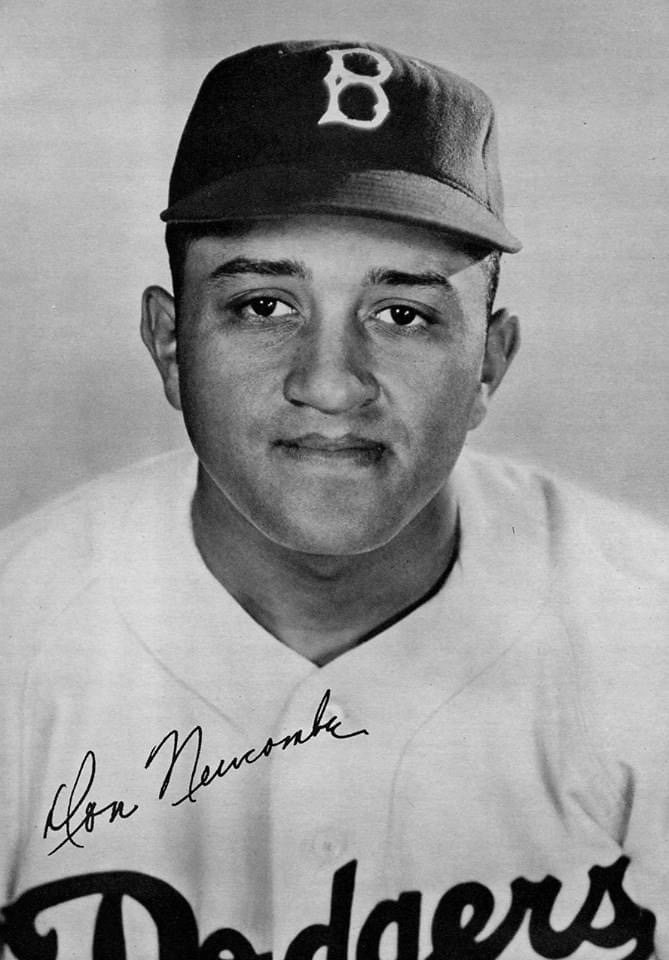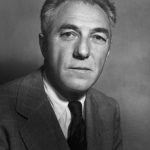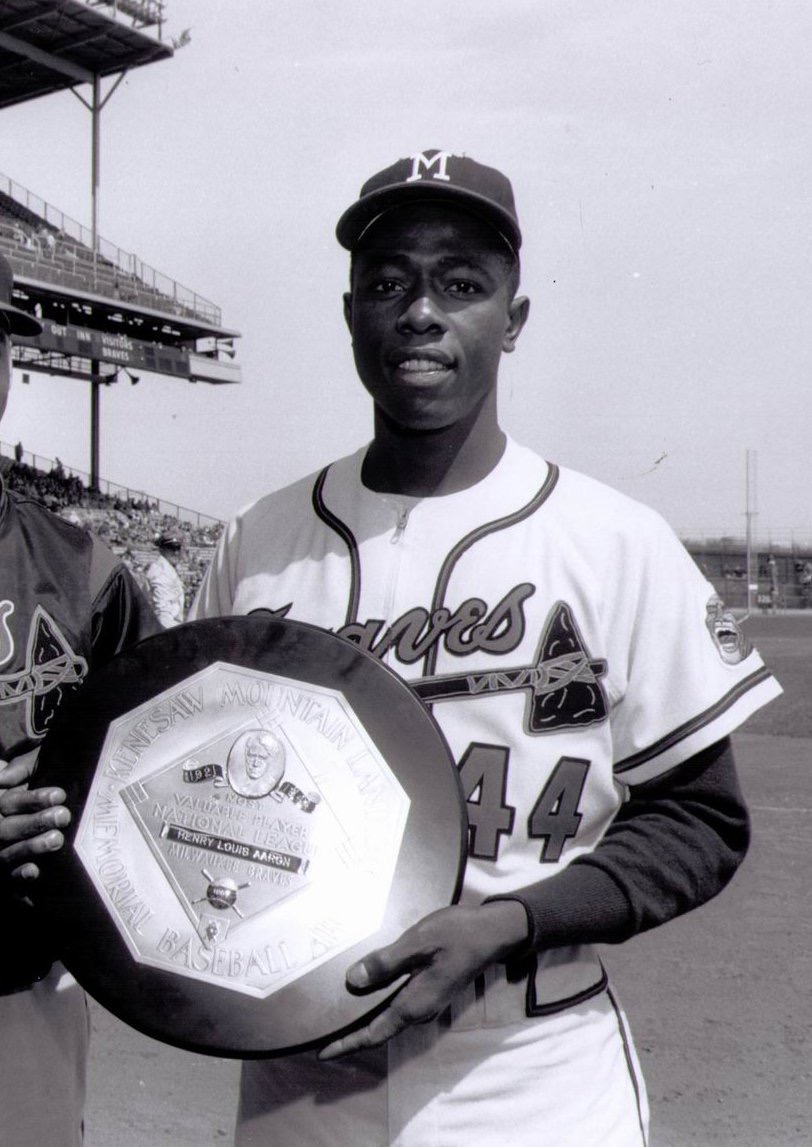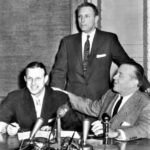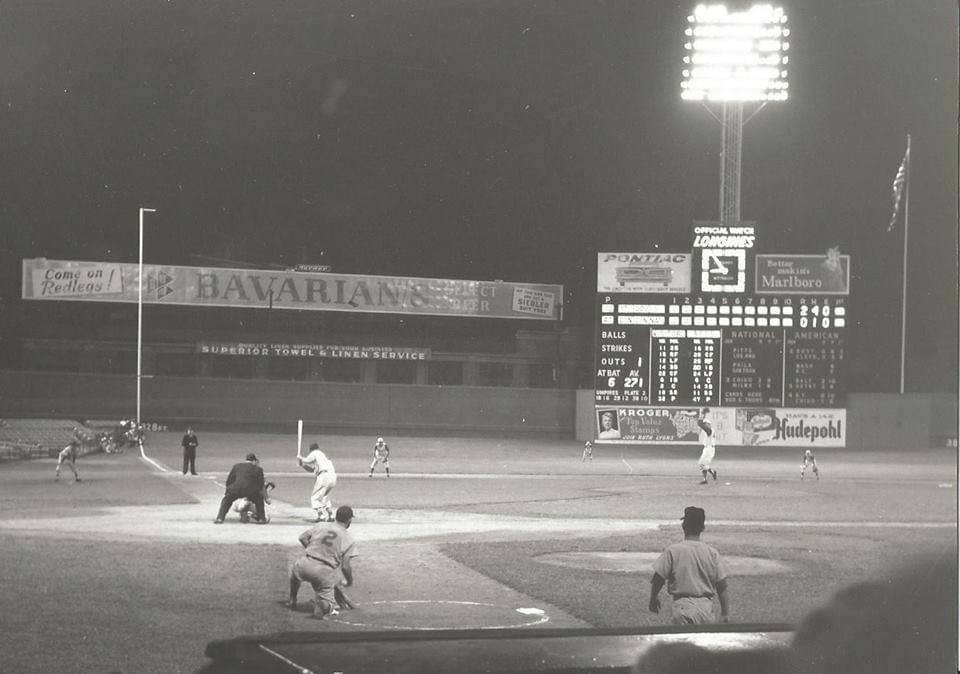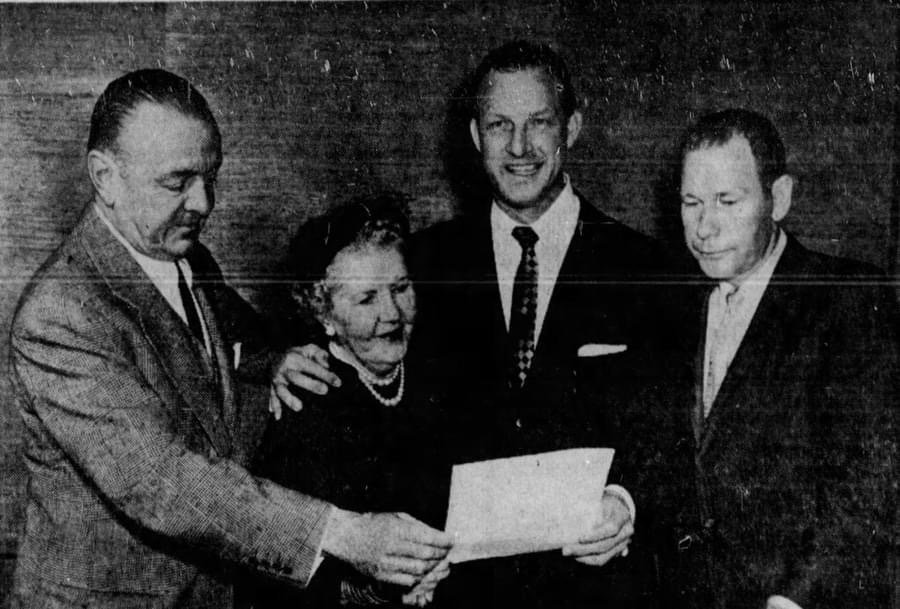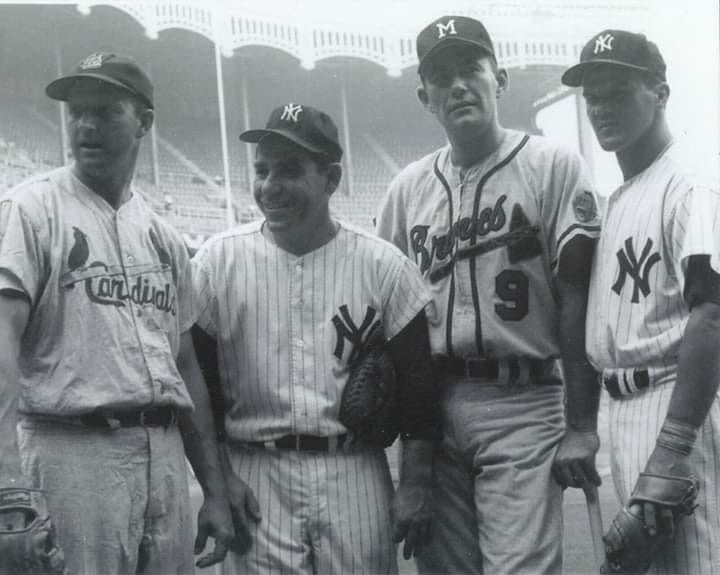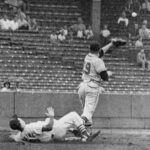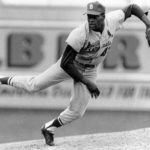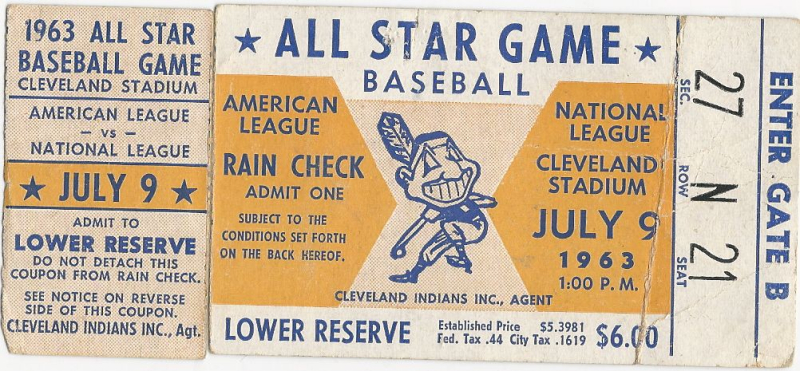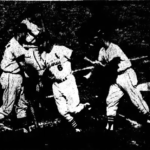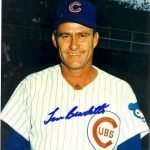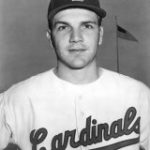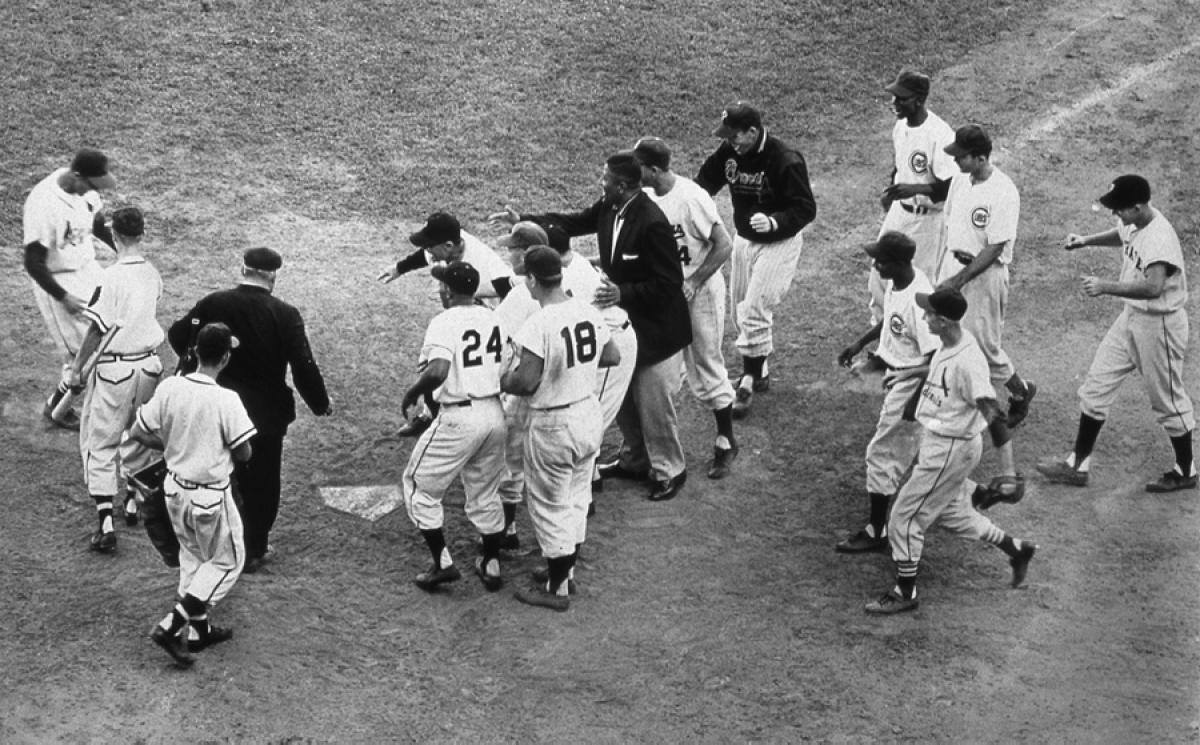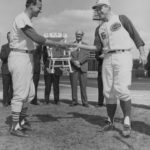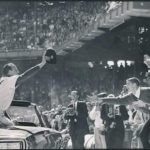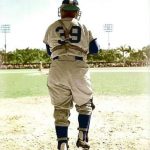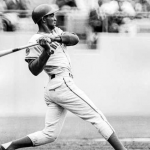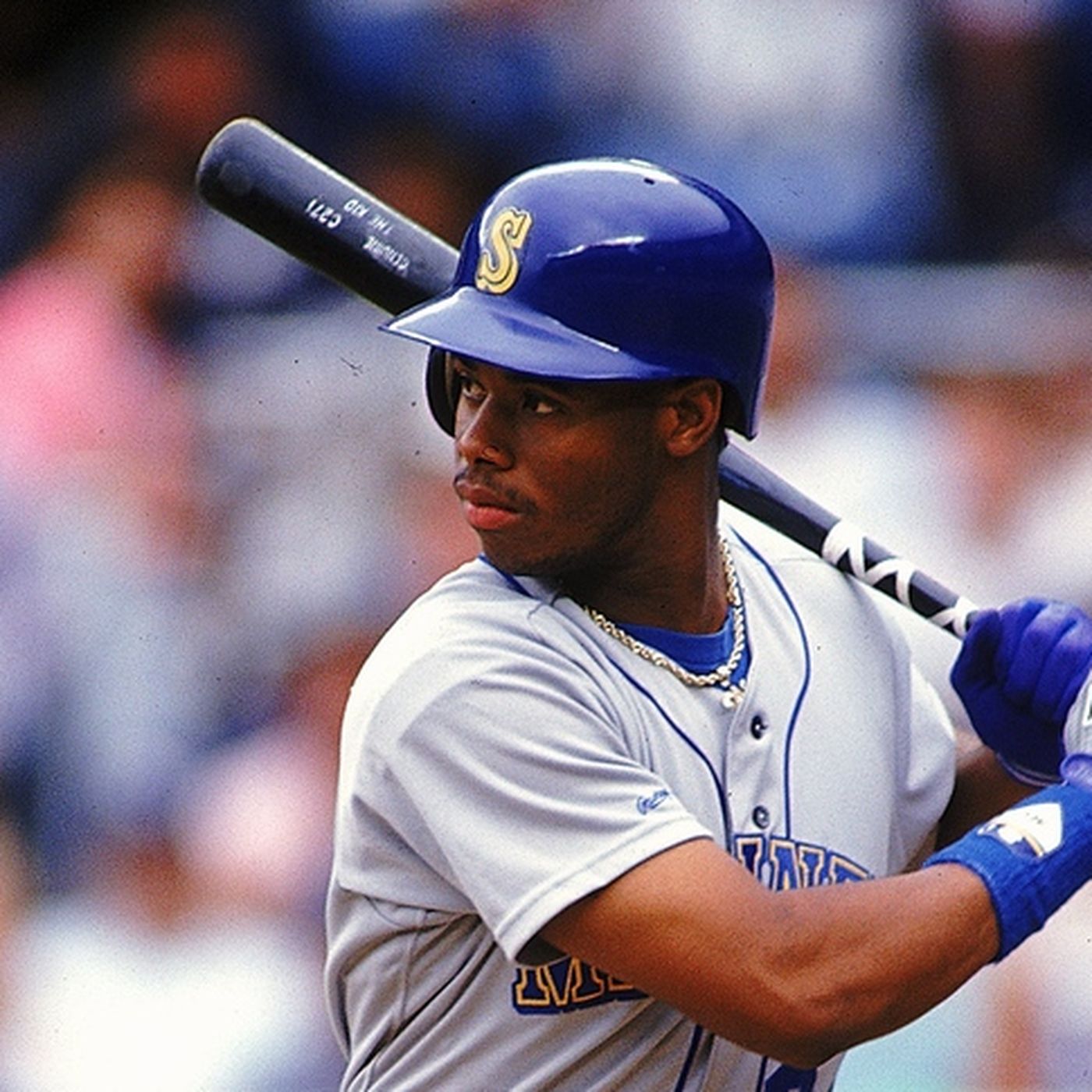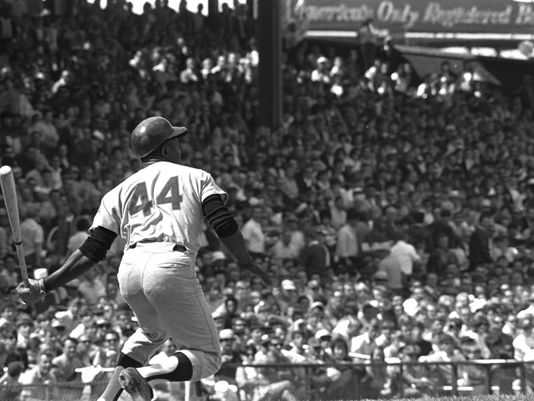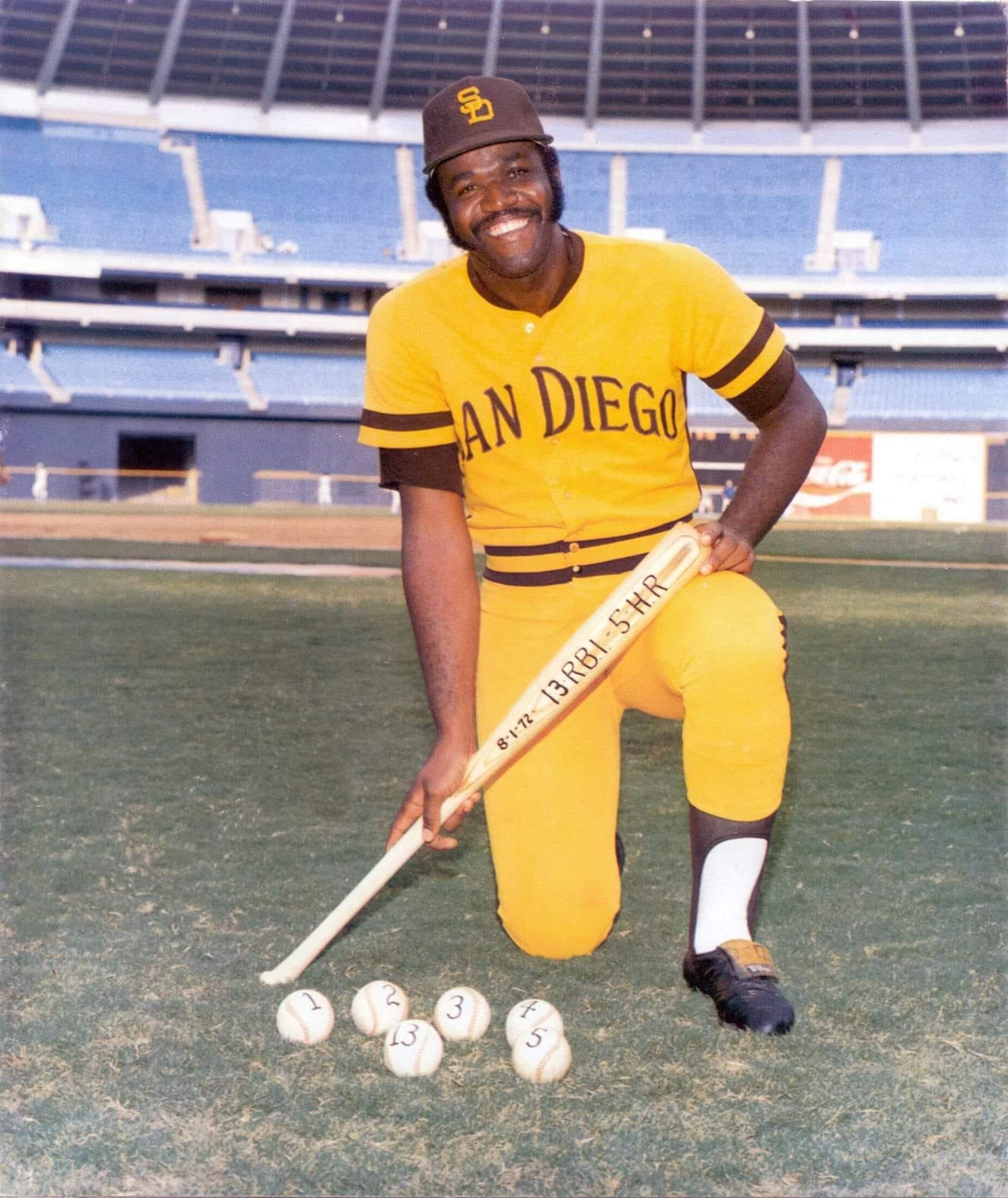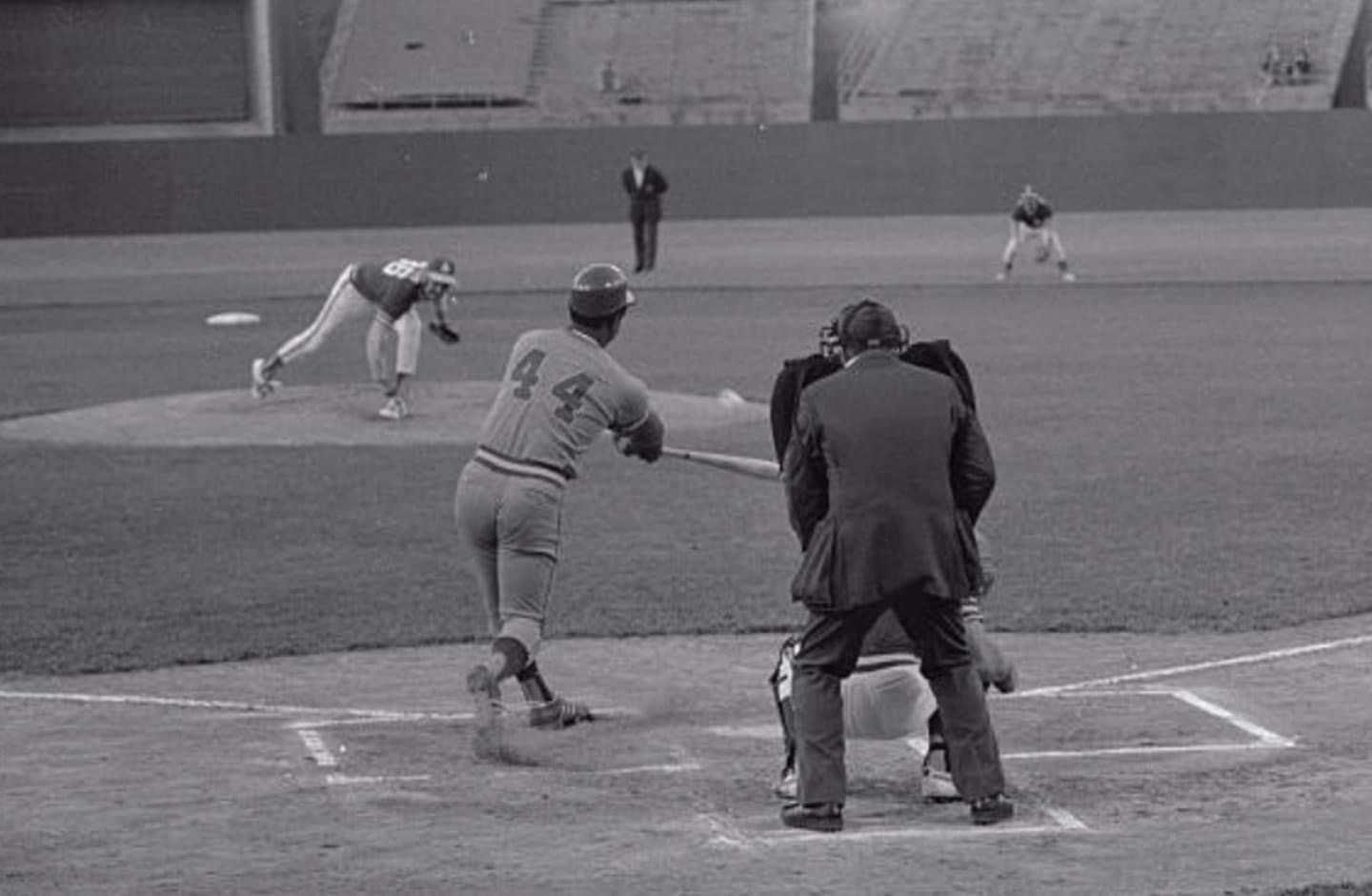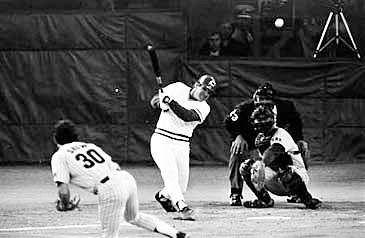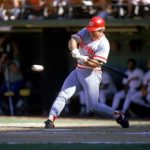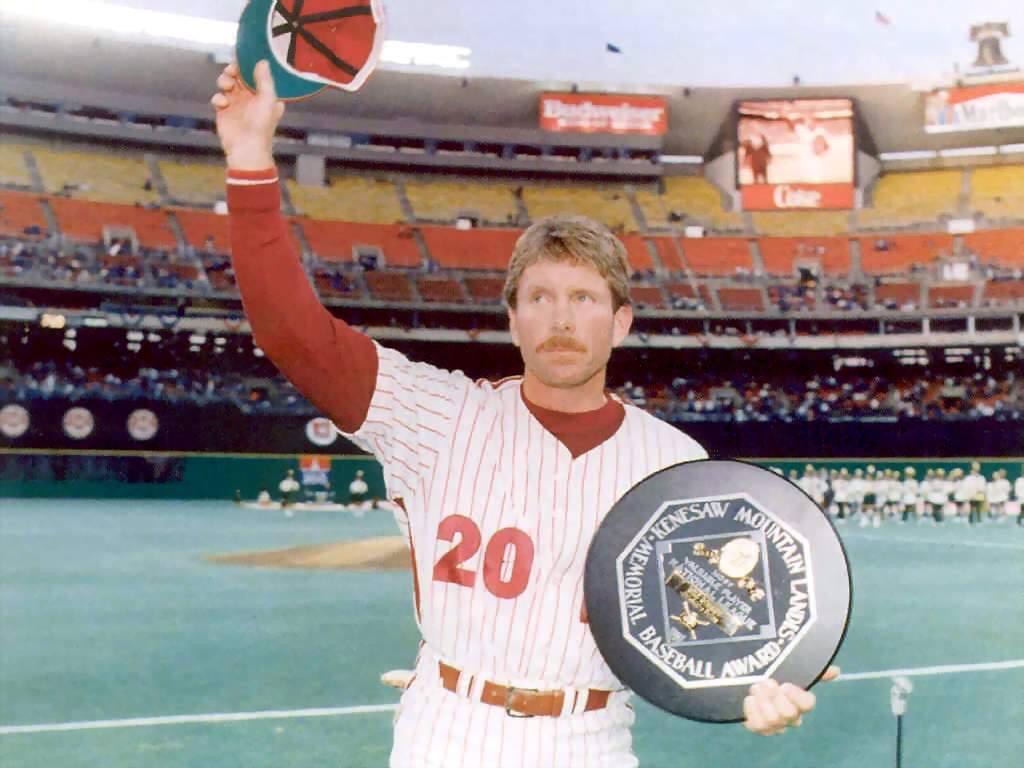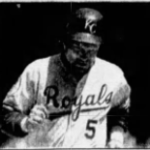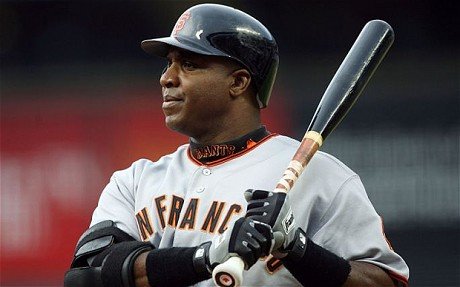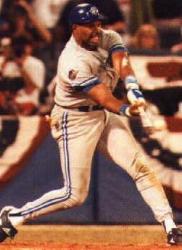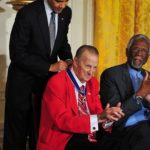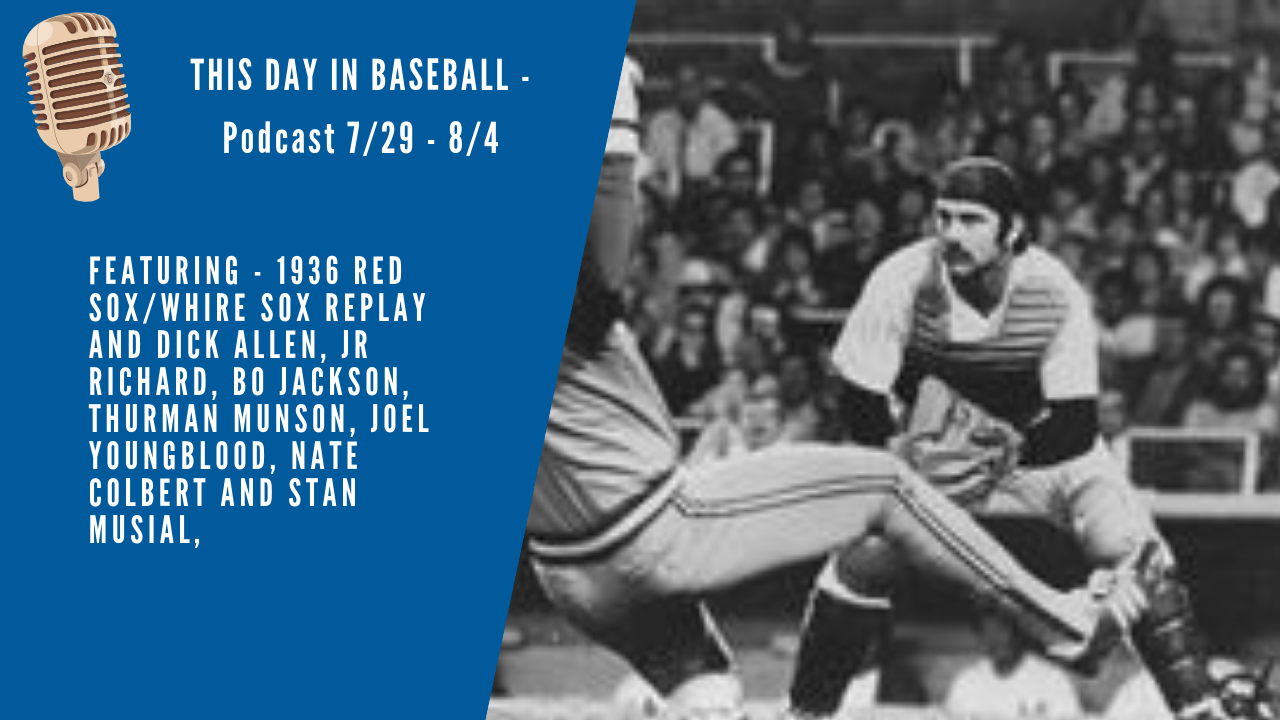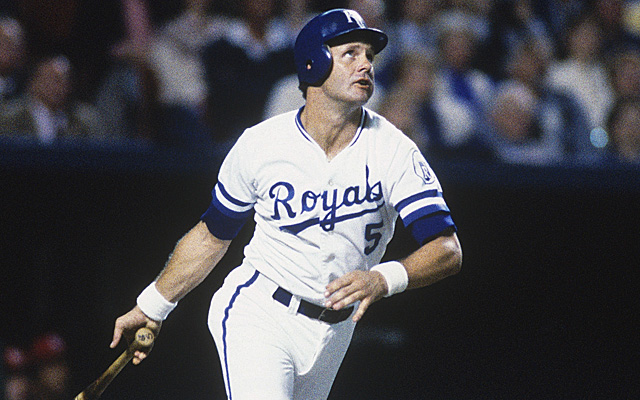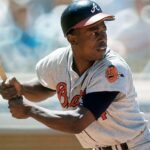Stan Musial Stats & Facts
Stan Musial
Positions: Outfielder and First Baseman
Bats: Left • Throws: Left
6-0, 175lb (183cm, 79kg)
Born: November 21, 1920 in Donora, PA
Died: January 19, 2013 in Ladue, MO
Buried: Forever Bellerive Cemetery, Creve Coeur, MO
High School: Donora HS (Donora, PA)
Debut: September 17, 1941 (7,285th in MLB history)
vs. BSN 4 AB, 2 H, 0 HR, 2 RBI, 0 SB
Last Game: September 29, 1963
vs. CIN 3 AB, 2 H, 0 HR, 1 RBI, 0 SB
Hall of Fame: Inducted as Player in 1969. (Voted by BBWAA on 317/340 ballots)
View Stan Musial’s Page at the Baseball Hall of Fame (plaque, photos, videos).
Full Name: Stanley Frank Musial
Nicknames: Stan the Man, Stashu, Stash or The Donora Greyhound
View Player Bio from the SABR BioProject
Nine Players Who Debuted in 1941
Stan Musial
Phil Rizzuto
Bob Lemon
Vern Stephens
Dave Philley
Jim Hegan
Danny Murtaugh
Dick Wakefield
Virgil Trucks
The Stan Musial Teammate Team
C: Joe Garagiola
1B: Johnny Mize
2B: Red Schoendienst
3B: Ken Boyer
SS: Marty Marion
LF: Curt Flood
CF: Terry Moore
RF: Enos Slaughter
SP: Harry Brecheen
SP: Bob Gibson
SP: Mort Cooper
SP: Curt Simmons
SP: Vinegar Bend Mizell
RP: Al Brazle
M: Billy Southworth
Notable Events and Chronology for Stan Musial Career
Biography
Greatly admired and respected by everyone in and around baseball, Stan Musial was one of the most popular players to ever don a major league uniform. Since big league ball wasn’t played any further west than the city of St. Louis until the Dodgers and Giants moved to California in 1958, Musial was a hero to virtually every young boy who lived beyond the banks of the Mississippi River during the 1940s and 1950s. The Cardinal outfielder’s warm, unpretentious, and easy-going manner also made him a favorite of teammates and opponents alike. Musial’s popularity was further enhanced by the greatness he displayed on the ballfield – a greatness that enabled him to win seven batting championships and three National League Most Valuable Player Awards during his 22-year career with the Cardinals.
Stanislaw Franciszek Musial was born in Donora, Pennsylvania on November 21, 1920, the fifth of six children to Polish immigrants. After having his name formally changed to “Stanley Frank” when he enrolled in school, Musial began playing semi-professional ball at the age of 15 while still attending Donora High School. Stan spent his early years in the game mostly as a pitcher, although he occasionally played the outfield as well. He signed an amateur free-agent contract with the St. Louis Cardinals in 1938, and was used exclusively as a pitcher his first two years in the minors, before splitting his time between the mound and the outfield in his third season. Any aspirations Musial had of eventually becoming a big-league pitcher came to an abrupt end during the latter stages of the 1940 campaign when he injured his left shoulder while making a diving catch in the outfield. After subsequently being convinced by his manager to pursue a career as an outfielder, Musial peppered International League pitching throughout much of the following year, before finally being called up by the Cardinals on September 17, 1941.
Musial provided a brief glimpse into his ability to hit a baseball over the final two weeks of the 1941 campaign, posting a .426 batting average in his 47 official at-bats and hitting his first home run in the major leagues. He became the Cardinals’ starting leftfielder the following year, batting .315 and scoring 87 runs in his first full season, to help St. Louis capture the world championship. The young outfielder developed into a star in 1943, leading the league in seven different offensive categories, including batting average (.357), hits (220), triples (20), and doubles (48), en route to leading the Cardinals to their second straight National League pennant. Although St. Louis subsequently lost the World Series to the Yankees in five games, Musial was named N.L. MVP.
Musial had another outstanding year in 1944, driving in 94 runs, finishing second in the league with 112 runs scored and a .347 batting average, and topping the circuit with 51 doubles, 197 hits, a .440 on-base percentage, and a .549 slugging percentage. The Cardinals captured their third pennant and second world championship in his first three seasons with the team, and Musial ended up finishing fourth in the league MVP voting.
Musial entered the United States Navy in January, 1945 and missed the entire 1945 campaign. However, he returned to the Cardinals the following year and picked up right where he had left off. Splitting his time between first base and left field, Musial established new career highs in virtually every offensive category. In addition to hitting16 home runs and driving in 103 runs, he led the league with 124 runs scored, 228 hits, 20 triples, 50 doubles, a .365 batting average, and a .587 slugging percentage. The Cardinals won the National League pennant again, then went on to defeat Ted Williams and the Boston Red Sox in a classic seven-game World Series that was highlighted by Enos Slaughter’s “mad dash” around the bases in the decisive seventh game. Musial was named league MVP for the second time at season’s end.
Musial spent the entire 1947 campaign at first base and had a solid year, hitting 19 home runs, driving in 95 runs, and scoring 113 others. But concurrent bouts with appendicitis and tonsilitis caused his batting average to fall more than 50 points, to .312. After having both his appendix and his tonsils removed during the offseason, Stan The Man returned to left field in 1948 to have the greatest season of his career. Musial had always been an outstanding line-drive hitter his first several seasons, accumulating huge sums of doubles and triples, while also collecting his fair share of home runs. However, the lefthanded-hitting Musial became more of a power hitter in 1948, using his unique batting stance, in which he faced the opposing pitcher with his front shoulder while crouching down low, to turn on the ball and pull it into the right field stands with greater frequency. Musial ended up leading the league in nine different offensive categories, falling just one home run short of capturing the triple crown. In addition to finishing second in the senior circuit with 39 homers, Stan The Man led the league with 131 runs batted in, 135 runs scored, 230 hits, 18 triples, 46 doubles, a .376 batting average, a .450 on-base percentage, a .702 slugging percentage, and 429 total bases. By striking out only 34 times, Musial accomplished the rare feat of compiling more home runs than strikeouts. He subsequently became the first National League player to be named league MVP three times.
A true student of hitting, Musial described one of the techniques he used to become the National League’s dominant hitter of his time: “I consciously memorized the speed at which every pitcher in the league threw his fastball, curve, and slider; then, I’d pick up the speed of the ball in the first 30 feet of its flight and knew how it would move once it had crossed the plate.”
Yet, Musial presented a far less scientific approach to hitting when he said, “You wait for a strike, then you knock the shit out of it.”
National League pitchers feared Musial more than any other hitter in the senior circuit.
Hall of Fame hurler Warren Spahn suggested, “Once Musial timed your fastball, your infielders were in jeopardy.”
Dodger pitcher Preacher Roe discussed the technique he employed whenever he faced Musial: “I throw him four wide ones, then try to pick him off first base.”
In spite of the difficulties Musial presented to opposing pitchers whenever he stepped into the batter’s box, they had a difficult time developing a personal dislike for him. Friendly, affable, good-natured, considerate, and modest, Musial was loved by everyone in the game, especially his teammates, who he often entertained on road excursions by playing his harmonica. Musial had an endearing quality to his personality that few could resist, and he remained extremely humble through the years in spite of the excellence he displayed on the ballfield.
Ty Cobb wrote an article for Life magazine that came out just before the start of the 1952 campaign in which he essentially stated that the modern ballplayer couldn’t compare to the men who played the game during his time. However, he singled out Musial as an exception, proclaiming that he believed the St. Louis outfielder to be “…a better player than Joe DiMaggio was in his prime.” Displaying the humility for which he was so well noted, Musial responded to the article by saying, “Cobb is baseball’s greatest. I don’t want to contradict him, but I can’t say that I was ever as good as Joe DiMaggio.”
After winning the National League pennant in Musial’s first four full seasons, the Cardinals never again finished atop the league standings while Stan The Man was a member of the team. Nevertheless, Musial continued to excel for another decade as he went on to establish himself as one of the greatest hitters in baseball history. He had another fabulous season in 1949, placing among the league leaders with 36 home runs, 123 runs batted in, 128 runs scored, and a .338 batting average, and topping the circuit in hits, triples, doubles, on-base percentage, and total bases. Musial then captured the next three league batting titles, posting averages of .346, .355, and .336 in 1950, 1951, and 1952, respectively.
Although Musial compiled batting averages of .337 and .330 in 1953 and 1954, he failed to win the batting championship either year. Yet, he made baseball history on May 2, 1954 when he became the first major league player to hit five home runs in a doubleheader. Musial ended the campaign with 35 homers, 126 runs batted in, and a league-leading 120 runs scored. In fact, although Musial was not generally thought of as being a pure home run hitter, he averaged 31 long balls per season from 1948 to 1957.
After being named Sportsman of the Year by Sports Illustrated in 1957 for hitting 29 home runs, driving in 102 runs, and batting a league-leading .351 at age 36, Musial began to show a decline in offensive productivity the following year. Although Stan The Man batted .337 in 1958, he hit only 17 homers and knocked in just 62 runs. Musial’s batting average fell below .300 for the first time in his career the following year, and, when he failed to reach that mark in either of the next two seasons as well, speculation began that the Cardinal great’s playing days were nearing an end. Musial, though, put an end to such talk when he rebounded in 1962 to finish third in the league with a .330 batting average, while also hitting 19 home runs and driving in 82 runs. He played one more year before finally calling it quits at the conclusion of the 1963 campaign, at age 43.
Stan Musial ended his career with 475 home runs, 1,951 runs batted in, 1,949 runs scored, a lifetime batting average of .331, a .417 on-base percentage, 3,630 hits, 177 triples, and 725 doubles. At the time of his retirement, he either held or tied for 17 major league records, 29 National League records, and nine All-Star Game records. Included among Musial’s major league marks were most extra-base hits (1,377) and most total bases (6,134). He also led all National League players in hits, doubles, runs batted in, and games played. An amazingly consistent performer, Musial compiled 1,815 hits at home over the course of his career, while also accumulating 1,815 hits on the road.
In addition to winning seven batting titles, Musial led the National League in doubles eight times, hits, on-base percentage, slugging average and total bases six times each, runs scored and triples five times each, and runs batted in twice. He batted over .300 in each of his first 16 full seasons, topping the .340-mark on seven separate occasions. Musial also surpassed 30 homers and 200 hits six times each, 100 RBIs 10 times, 100 runs scored 11 times, 40 doubles nine times, and 10 triples on eight separate occasions. He struck out a total of only 696 times in almost 11,000 career at-bats. A solid outfielder as well, Musial compiled a total of 31 assists in 1943 and 1944, before splitting his time between left field and first base for much of the remainder of his career. In addition to being named N.L. MVP on three separate occasions, Musial finished second in the balloting four other times. He appeared in the All-Star Game in 20 of his 21 full seasons.
Longtime Dodger announcer Vin Scully once said, “How good was Stan Musial? He was good enough to take your breath away.”
Immediately following Musial’s retirement, he was named director of the National Council on Physical Fitness by President Lyndon Johnson. He later briefly served as St. Louis’s general manager, a position he held during the Cardinals’ 1967 world championship season. Musial was elected to the Baseball Hall of Fame in his first year of eligibility in 1969.
In discussing Musial’s legacy on ESPN’s SportsCentury, Bob Costas noted, “He didn’t hit a homer in his last at-bat; he hit a single. He didn’t hit in 56 straight games. He married his high school sweetheart and stayed married to her – never married a Marilyn Monroe. He didn’t play with the sheer joy and style that goes alongside Willie Mays’ name. None of those easy things are there to associate with Stan Musial. All Musial represents is more than two decades of sustained excellence and complete decency as a human being.”
@ET-DC@eyJkeW5hbWljIjp0cnVlLCJjb250ZW50IjoicG9zdF90YWdzIiwic2V0dGluZ3MiOnsiYmVmb3JlIjoiTGVhcm4gTW9yZSBhYm91dCB0aGUgdGVhbXMsIHBsYXllcnMsIGJhbGwgcGFya3MgYW5kIGV2ZW50cyB0aGF0IGhhcHBlbmVkIG9uIHRoaXMgZGF0ZSBpbiBoaXN0b3J5IC0gLSAtIC0gLSAtIC0gIiwiYWZ0ZXIiOiIiLCJsaW5rX3RvX3Rlcm1fcGFnZSI6Im9uIiwic2VwYXJhdG9yIjoiIHwgIiwiY2F0ZWdvcnlfdHlwZSI6InBvc3RfdGFnIn19@
Similar: No one player was truly comparable to Musial, not even close. Imagine George Brett’s extra-base power, Ted Williams’ batting eye, the grace of Joe DiMaggio, and the competitive spirit of Pete Rose.
Linked: Nate Colbert, Ken Griffey and Ken Griffey Jr.
Nicknames: Stan the Man, Stosh
“The Man” came from Brooklyn fans lamenting, “Here comes ‘that man’ again.”
Best Season, 1948
Musial won his third MVP in 1948, and his third batting title (.376). He banged out 230 hits, leading the league in that category. He also paced the NL in runs scored, doubles, triples, RBI, total bases, extra-base hits, slugging, OBP, and OPS.
Awards and Honors
1943 NL MVP
1946 NL MVP
1948 NL MVP
Post-Season Appearances
1942 World Series
1943 World Series
1944 World Series
1946 World Series
Scouting Report
Musial was signed by the Cardinals as a pitcher, but his quick feet were not overlooked. His exploits in Pennsylvania earned him the nickname “The Donora Greyhound.” As a major leaguer, Musial would never steal more than nine bases in a season, though he was considered a strong base runner.
Where He Played: Outfield (1,980 games), first base (1,016). Musial played 47% of his outfield games in LF, 16% in CF, and 37% in RF. From 1955 on, he was basically a first baseman.
Notes
Besides being named the NL’s MVP three times (1943, 1946, and 1948), he was selected as The Sporting News NL Player of the Year in 1943, 1948, 1951, and 1957, The Sporting News Major League Player of the Year in 1946 and 1951, and The Sporting News first Player of the Decade in 1956. Twelve times Musial made The Sporting News Major League All-Star team… Musial batted .340 through the 1958 season, but his lifetime average subsequently dropped to .331. The aging, injury-plagued Musial averaged only .283 over his final five seasons. Although his 3,630 hits were equally divided home and away, Musial compiled a .336 batting average in home games and .326 in road contests. He hit an impressive .340 in daylight, much higher than his .320 in night games.
Injuries and Explanation for Missed Playing Time
Early in the 1947 season, Musial suffered appendicitis. His absence from the lineup helped contribute to a bad start by the Cardinals, who were the defending NL Champions… Musial suffered a shoulder injury in 1957 that kept him out of the lineup from August 22 to September 15. Despite the injury, he won his seventh batting title. From August 15 through the end of the season, the 36-year old Musial batted .467 to pull away to win the crown.
Hitting Streaks
30 games (1950)
30 games (1950)
24 games (1952)
24 games (1952)
22 games (1943)
22 games (1943)
20 games (1957)
20 games (1957)
Most Walk-Off Home Runs, Career
Jimmie Foxx……..12
Mickey Mantle……12
Stan Musial……..12
Frank Robinson…..12
Babe Ruth……….12
Tony Perez………11
Dick Allen………10
Harold Baines……10
Reggie Jackson…..10
Mike Schmidt…….10
Musial’s 3,000th Hit
Stan Musial was one of the greatest players in baseball history. Though he began his professional career as a pitcher, Musial was ultimately known for his bat. This is the story of his drive for 3,000 hits and an amazing streak of success in 1958.
1957 had seen “The Man” win his seventh and final batting title, so ’58 seemed to hold more to come for the future Hall of Famer. The Cardinals began the season on the road at Chicago on April 15th, Musial going 1-for-5 in the loss. Little did anyone know that Musial was about to go on one of the longest sustained tears in his career, and one of the greatest quick starts in baseball history.
The opening five-game series with the Cubs saw Musial collect 10 hits; in a three-game series at San Francisco that followed, he went 7-for-11. In the first game of the next series – against the Dodgers – he went 4-for-4, raising his average to .553. Wrapping up the season-opening 13-game road trip with two contests in Cincinnati, Musial rapped out four more hits.
Coming home to St. Louis, Musial’s bat stayed hot: on opening day he managed just a single hit, but over the next three days he collected 7 hits, including 4 doubles. On May 8th Musial was just 7 hits shy of the 3,000 mark, having collected an amazing 36 hits in the first 17 games of the season. He had a .529 batting average, having collected a hit in all 17 games.
Though the Cubs cooled him off on the 9th and 10th of May, collaring him at 0-for-7, he bounced back with two hits on the 11th, including his 5th home run. Three hits the next afternoon left Stan two hits from his goal with two games in Wrigley up next.
Cards manager Fred Hutchinson used his veteran in the first game on the 12th, with Stan posting his 2,999th career hit. It was a double and the red-hot Redbirds won their 5th straight. After the game Musial mentioned to coach Terry Moore that he hoped he would get the magical hit at home. Musial expressed that he hoped he would walk every time up the next day. Moore passed the conversation on to Hutchinson, who decided to hold Musial back a day.
The next afternoon, May 13th, the Cubs jumped out to an early lead as Stan watched from the bench. In the sixth inning with his team trailing 3-1 and a man on second, Hutchinson summoned Musial to pinch-hit for his pitcher. With two outs, and less than 6,000 fans in the park, Musial squared off against Moe Drabowsky. With two strikes on him Musial laced a breaking ball down the left field line, scoring the second Cardinal run.
Musial pulled into second base with a standup double, receiving a standing ovation from the sparse crowd. Just as Musial’s first major league hit had been an RBI double, so was his 3,000th.
After the contest Hutchinson apologized to his star, but Musial would have none of it. He understood that he was needed to help his team come back, and they did – winning the game 5-3.
The milestone did nothing to stop Musial’s torrid early pace in 1958. The following day back home in St. Louis he ripped three hits, including a homer, in the Cards seventh straight victory. 30,000 fans were on hand to honor their hero and cheer the streaking Cardinals.
Later in the month, Musial hit safely in 9 straight games, and he was above the .400 mark as late as June 11th. A special hitter, Musial had been tenacious in his quest for 3,000 hits.
Musial vs. Dodger Pitching
According to Retrosheet, here are Stan Musial’s stats against Dodger pitchers, from 1946-1963:
Pitcher AB H 2B 3B HR BB SO RBI BA OA SA Bankhead, Dan 8 2 0 0 1 1 2 1 .250 .333 .625 Banta, Jack 6 2 0 1 0 3 2 2 .333 .556 .667 Barney, Rex 22 7 1 1 0 2 0 6 .318 .375 .455 Behrman, Hank 23 9 1 0 2 2 0 5 .391 .440 .696 Bessent, Don 10 3 1 0 0 2 1 1 .300 .417 .400 Birrer, Babe 2 2 0 0 0 0 0 0 1.000 1.000 1.000 Black, Joe 11 5 1 0 2 4 0 3 .455 .600 1.091 Branca, Ralph 60 20 4 2 2 9 3 3 .333 .429 .567 Calmus, Dick 1 0 0 0 0 0 1 0 .000 .000 .000 Casey, Hugh 11 6 1 1 1 2 1 5 .545 .615 1.091 Chandler, Ed 3 1 0 0 1 1 0 2 .333 .500 1.333 Churn, Chuck 1 1 0 0 0 1 0 0 1.000 1.000 1.000 Craig, Roger 50 17 2 0 2 7 3 7 .340 .414 .500 Dockins, George 2 0 0 0 0 0 0 0 .000 .000 .000 Drysdale, Don 68 22 4 0 1 5 6 5 .324 .360 .426 Erskine, Carl 116 39 10 2 8 18 4 23 .336 .430 .664 Farrell, Turk 2 1 0 0 0 0 0 0 .500 .500 .500 Fowler, Art 3 0 0 0 0 0 0 0 .000 .000 .000 Giallombardo, Bob 1 1 0 0 1 0 0 1 1.000 1.000 4.000 Golden, Jim 1 0 0 0 0 1 0 0 .000 .500 .000 Gregg, Hal 10 6 1 1 1 1 0 3 .600 .636 1.200 Hatten, Joe 72 27 10 1 2 12 2 10 .375 .477 .625 Haugstad, Phil 1 0 0 0 0 0 0 0 .000 .000 .000 Head, Ed 2 2 0 1 0 0 0 1 1.000 1.000 2.000 Herring, Art 4 1 0 0 0 0 0 0 .250 .250 .250 Higbe, Kirby 12 2 1 0 0 3 1 1 .167 .333 .250 Hughes, Jim 15 3 2 0 0 4 2 1 .200 .368 .333 King, Clyde 9 1 0 0 0 5 0 0 .111 .429 .111 Kipp, Fred 7 5 2 0 0 2 0 1 .714 .778 1.000 Klippstein, Johnny 6 3 2 0 0 3 1 3 .500 .667 .833 Koufax, Sandy 38 13 1 0 2 6 5 7 .342 .432 .526 Labine, Clem 40 9 1 1 1 5 2 2 .225 .311 .375 Landrum, Joe 2 1 1 0 0 0 0 0 .500 .500 1.000 LaSorda, Tom 1 0 0 0 0 1 1 1 .000 .333 .000 Lehman, Ken 7 2 0 0 1 1 0 2 .286 .375 .714 Loes, Billy 14 7 2 0 1 5 0 4 .500 .632 .857 Lombardi, Vic 33 12 0 4 1 4 1 4 .364 .432 .697 Maglie, Sal 6 2 0 0 0 1 2 1 .333 .429 .333 Martin, Morrie 4 0 0 0 0 0 1 0 .000 .000 .000 McDevitt, Danny 13 4 0 0 0 3 1 1 .308 .438 .308 McLish, Cal 1 1 0 0 0 0 0 0 1.000 1.000 1.000 Melton, Rube 9 5 1 0 0 1 0 1 .556 .600 .667 Meyer, Russ 9 2 0 0 0 3 0 0 .222 .417 .222 Miller, Bob 9 4 0 0 1 0 0 1 .444 .444 .778 Milliken, Bob 11 2 0 0 0 1 1 4 .182 .250 .182 Minner, Paul 15 7 1 0 3 1 0 3 .467 .500 1.133 Moore, Ray 2 1 0 0 1 0 0 2 .500 .500 2.000 Mossor, Earl 1 0 0 0 0 0 1 0 .000 .000 .000 Newcombe, Don 101 37 7 3 8 8 6 21 .366 .409 .733 Ortega, Phil 1 0 0 0 0 0 0 0 .000 .000 .000 Palica, Erv 21 9 2 2 1 6 0 8 .429 .556 .857 Palmquist, Ed 1 0 0 0 0 1 0 0 .000 .500 .000 Perranoski, Ron 12 6 2 0 0 3 0 5 .500 .600 .667 Podbielan, Bud 6 3 0 0 0 4 0 1 .500 .700 .500 Podres, Johnny 108 38 8 1 5 11 8 18 .352 .418 .583 Ramsdell, Willie 0 0 0 0 0 1 0 0 .000 1.000 .000 Richert, Pete 6 1 1 0 0 1 0 1 .167 .286 .333 Roe, Preacher 137 52 9 1 12 13 13 28 .380 .433 .723 Roebuck, Ed 20 5 0 0 2 4 0 5 .250 .400 .550 Rowe, Ken 1 1 0 0 0 0 0 0 1.000 1.000 1.000 Rutherford, Johnny 5 1 0 0 0 1 0 1 .200 .333 .200 Schmitz, Johnny 4 1 0 1 0 2 0 1 .250 .500 .750 Scott, Dick 2 0 0 0 0 0 0 0 .000 .000 .000 Sherry, Larry 20 6 1 1 1 5 3 4 .300 .440 .600 Snyder, Gene 2 0 0 0 0 0 0 0 .000 .000 .000 Spooner, Karl 12 2 0 0 0 0 1 3 .167 .214 .167 Taylor, Harry 18 3 1 0 0 3 1 0 .167 .286 .222 Templeton, Chuck 4 2 0 0 0 1 0 1 .500 .571 .500 VanCuyk, Johnny 0 0 0 0 0 1 0 0 .000 1.000 .000 VanCuyk, Chris 20 6 2 0 0 4 3 1 .300 .417 .400 Wade, Ben 18 5 1 0 2 4 1 6 .278 .409 .667 Webber, Les 3 0 0 0 0 1 0 0 .000 .250 .000 Williams, Stan 31 9 1 0 1 4 3 5 .290 .371 .419 Wojey, Pete 1 0 0 0 0 0 0 0 .000 .000 .000 Totals 1308 447 85 24 67 198 83 226 .342 .429 .597
Quotes About Musial
“He could have hit .300 with a fountain pen.” – Joe Garagiola
“How good was Stan Musial? He was good enough to take your breath away.” – Vin Scully
“I’ve had pretty good success with Stan by throwing him my best pitch and backing up third.” – Carl Erskine
“Once Musial timed your fastball, your infielders were in jeopardy.” – Warren Spahn
“A couple years ago they told me I was too young to be president and you were too old to be playing baseball. But we fooled them.” – President John F. Kennedy to Musial, at the 1962 All Star Game
Quotes From Musial
“There was never a day when I was as good as Joe DiMaggio at his best. Joe was the best, the very best I ever saw.” — Stan Musial
“I consciously memorized the speed at which every pitcher in the league threw his fastball, curve, and slider; then, I’d pick up the speed of the ball in the first thirty feet of its flight and knew how it would move once it had crossed the plate.” — Stan Musial
“I have a darn good job, but please don’t ask me what I do.” — Stan Musial
“I love to play this game of baseball – I love putting on this uniform.” — Stan Musial
“I never realized that batting a little ball around could cause so much commotion. I now know how Lindbergh must have felt when he returned from St. Louis.”
“The first principle of contract negotiations is don’t remind them of what you did in the past – tell them what you’re going to do in the future.”
“The key to hitting for high average is to relax, concentrate, and don’t hit the fly ball to center field.”
“There is no one correct way to bat, and so of course there is no one correct stance for it.”
“When a pitcher’s throwing a spitball, don’t worry and don’t complain, just hit the dry side like I do.”
“You wait for a strike, then you knock the shit out of it.”
Home Run Facts
According to David Vincent, who has a database of every homer ever hit in baseball history, Musial belted 167 HR as a first baseman, 148 as a left fielder, and 114 as a right fielder. He is one of three players, through 2005, to have hit at least 100 at three different positions. The others are Harmon Killebrew and Dave Kingman.
All-Star Selections
1943 NL
1944 NL
1946 NL
1947 NL
1948 NL
1949 NL
1950 NL
1951 NL
1952 NL
1953 NL
1954 NL
1955 NL
1956 NL
1957 NL
1958 NL
1959 NL
1960 NL
1961 NL
1962 NL
1963 NL
Replaced
Johnny Hopp, who moved to first base in 1942 to make room for Musial in left field.
Replaced By
Lou Brock. How’s that for a transition? Musial was the primary left fielder in 1963, and Brock assumed that role in ’64, after he was acquired from the Cubs.
Best Strength as a Player
Everything
Largest Weakness as a Player
None
Other Resources & Links

